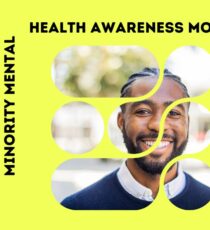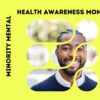
Do you struggle with believing that good things can happen for you or in life? Are you always “waiting for the other shoe to drop”? This was me for a long time. I’ve had a long history of not trusting that things can work out for my highest good. It was due to repeated disappointment and my upbringing in an environment rife with tension and anxiety. I grew up learning how to worry instead of believing in the effectiveness of working toward solutions and finding peace in the moment. It’s caused major emotional distress.
The fear that something would go wrong in a circumstance, job, relationship, whatever, was always present. And often times something did go wrong. I grew to feel like I was cursed – as if someone or some entity had put the kibosh on my potential to be happy and achieve goals. I had a lot of experiences to substantiate my fears.
I’ve experienced health challenges, job instability, unsatisfactory relationships and financial insecurity. Those experiences put me in a hard place mentally. Repeated disappointment can eventually condition you to think nothing good will ever happen or last. I finally got to a point where I knew I needed to change my perspective. Gaining optimism isn’t about believing that nothing will go wrong, it entails believing you will be ok in the end no matter what happens. Becoming more optimistic began with believing I deserve good things and that I will be ok. With that decision came the analysis and the work.
I started looking at the areas of my life where things hadn’t worked out and examined why. I looked at what happened that was within my control and what wasn’t. To accept that some things just happen in life was a huge relief of not having to take on the responsibility of circumstances that were fated. I also accepted that in some areas I could have made different choices. With that, I also had to forgive myself and recognize that I did the best I could with the knowledge and personal growth I had at the time. Then it was time to work on revamping my perspective. That’s where developing coping skills became critical. Learning acceptance of what I didn’t like and practicing gratitude for what I did appreciate also became key in my mental transformation. Taking stock of what was already good and what I had been blessed with was a huge help in shifting my belief and fear that things won’t work out.
The foundation of my transition into a less pessimistic mindset was learning that I wasn’t necessarily predestined for miserable experiences, even though it certainly felt that way. But the bulk of my difficult scenarios have been for an intended purpose in my development and path on earth. Physiologically I am probably hard wired to be less optimistic whether that is by nature or nurture but I’ve learned that there are tips we can utilize to increase our optimism. A few things that are effective are:
- Become aware of your negative thoughts and begin to challenge them. When you start thinking something will go wrong ask yourself questions like “Is this how I really feel, or is this what I fear?” “Is this actually true?” Learn to notice the difference.
- Limit your time around negative and pessimistic people when at all possible. Avoid people who poke holes in your goals and enthusiasm. You have the right to protect your energy.
- Visualize a positive possibility. Imagine an outcome where things work out–maybe not perfectly, but allow yourself to believe a more positive scenario than the one you fear.
- Reframe how you are viewing the issue. Consider how something can be working for you instead of to you.
I still wrestle with pessimistic thoughts, but now have the awareness to recognize them and tools to challenge them. It’s taken years of personal work but has provided much more peace. I’ll probably always struggle to some degree with believing everything will work out. I think we all experience irrational or valid fears and trepidations about things in life that are important to us. But the goal is to not become buried by them. Give yourself the option to feel better. Allow yourself the space to consider that it could all work out, in time, with effort and with faith.
For a more scientific review on how optimism and the brain work, read, “How to Train Your Brain to be More Optimistic”






Social Menu